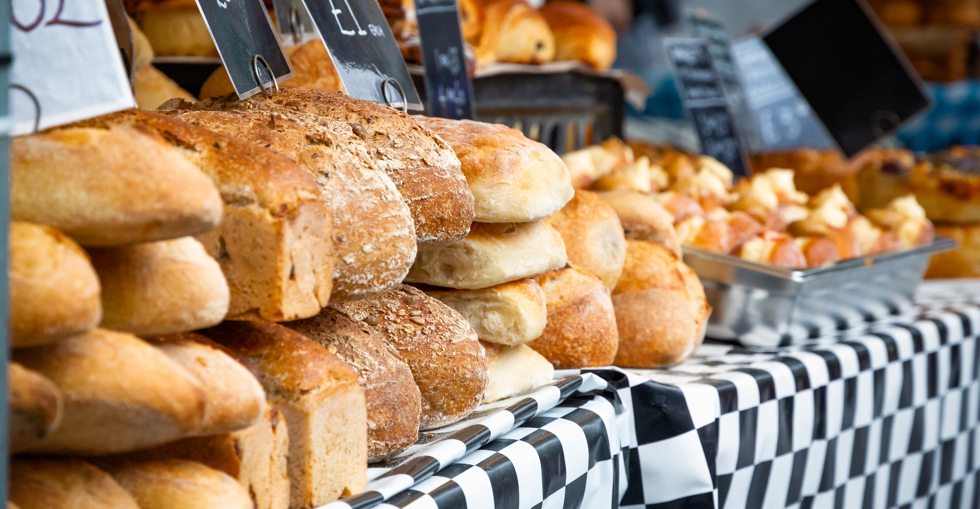Preparation is the watchword when it comes to selling your bakery.
Once you’ve made a decision to sell up – even if your intended exit is still 12-18 months away – it pays to start taking steps to burnish the business’s appeal and get your paperwork in order.
As a rule of thumb, the more patient and thorough you are in preparing your bakery for sale, the sooner you’ll find a buyer and the more favourable price you’ll achieve.
Preparing for sale
Much of the preparation process is common sense. In your kitchen and back office as well as ‘front of house’, your premises should be clean and tidy – as they should be whether you’re selling the business or not.
Since first impressions can be decisive, you might apply a lick of paint to the interior if the décor is looking shabby or dated. A more substantial makeover, however, is arguably a big financial risk because there’s no guarantee you’ll recoup the outlay through the sale price. Some buyers are intent on imposing their own vision of the bakery’s layout, apparatus and decor.
Then there’s paperwork. With the help of your accountant and attorney, get all documentation related to taxes, accounts, payroll, employment contracts, the lease and so on up to date and in order.

What are your bakery’s strengths and how can you bolster them further in the weeks and months leading up to putting your business on the market? These strengths can also shape the prospectus you show to interested parties.
Conversely, consider how you might mitigate any weaknesses for a modest investment of time and money.
Some areas in which your bakery might excel:
- High quality equipment. Perhaps your high-spec ovens, dough mixer and coffee machine give you an edge in quality
- A talented team. Your buyer will inherit a friendly, efficient, skilled team. Benefits can include processing orders briskly and a stellar reputation for range, quality and customer service
- Strong relationships with suppliers of quality ingredients at competitive prices
- Product differentiation. Requiring some combination of the above, this could mean, for instance, being the finest retailer of artisan or gluten-free breads in the area. This can widen the radius in which customers are prepared to travel
- Strong margins and price-competitive. Again, partly contingent on the first three factors above. A boon if your material costs are, say, within 20% of gross sales.
Assuming you’re a hands-on proprietor – as most bakery owners are – you probably don’t have much spare time for managing the sale process, let alone the expertise.
Fortunately, there are experts who can help you. You can delegate much of the work involved throughout the sales process to a combination of accountant, solicitor and/or business broker experienced in selling food retail businesses.

Business valuation
Value the business yourself and you’re liable to get it wrong – probably in an upwards direction. Lacking not just expertise but objectivity, sellers who eschew the advice of business valuation experts invariably overvalue their businesses.
Small retailers like bakeries are generally valued according to a multiple of net profits, with the ratio depending on the fortunes of that sector and the credentials of the business itself. A long lease or a busy high street location would drive up the ratio, for instance.
They will also include the freehold value – if applicable – plus inventory like ovens, fridges, coffee machines and any dry goods like flour or coffee beans.
Finding buyers
You may find a suitable buyer with the minimum of effort – perhaps one of your staff has the attributes and financial means to buy your bakery? If you’re willing to risk disclosing to rivals your intention to sell, then local competitors might represent another avenue.
The safest options, in terms of maintaining confidentiality, are to find buyers through your lawyer or business broker, or by listing your business on BusinessesForSale.com.

Negotiations
Once you’ve found a credible buyer and verified their ability to fund the purchase, it’s time to negotiate a price and heads of terms.
Not legally binding, this agreement is subject to change depending primarily on whether the buyer uncovers any undeclared issues during due diligence: an in-depth examination of your premises, inventory, accounts and all other bona fides relevant to the business’s value.
Accept some of the payment in instalments – known as owner or seller financing – and the buyer might be willing to pay more. The downside, of course, is not getting all of the money immediately and the risk of default – although your solicitor can put legal protections in place.
Sale agreement
Following due diligence the parties must draft up and sign a sale agreement. This time it’s a binding contract that commits both parties to proceed with the sale on the agreed terms.
These terms may differ from those set out in the heads of terms, depending on whether the due diligence revealed anything justifying (from the buyer’s perspective) a renegotiation, potentially including the price. The buyer may even decide to abandon the deal altogether.
For more advice on the sales process, read our guide to selling a business .

